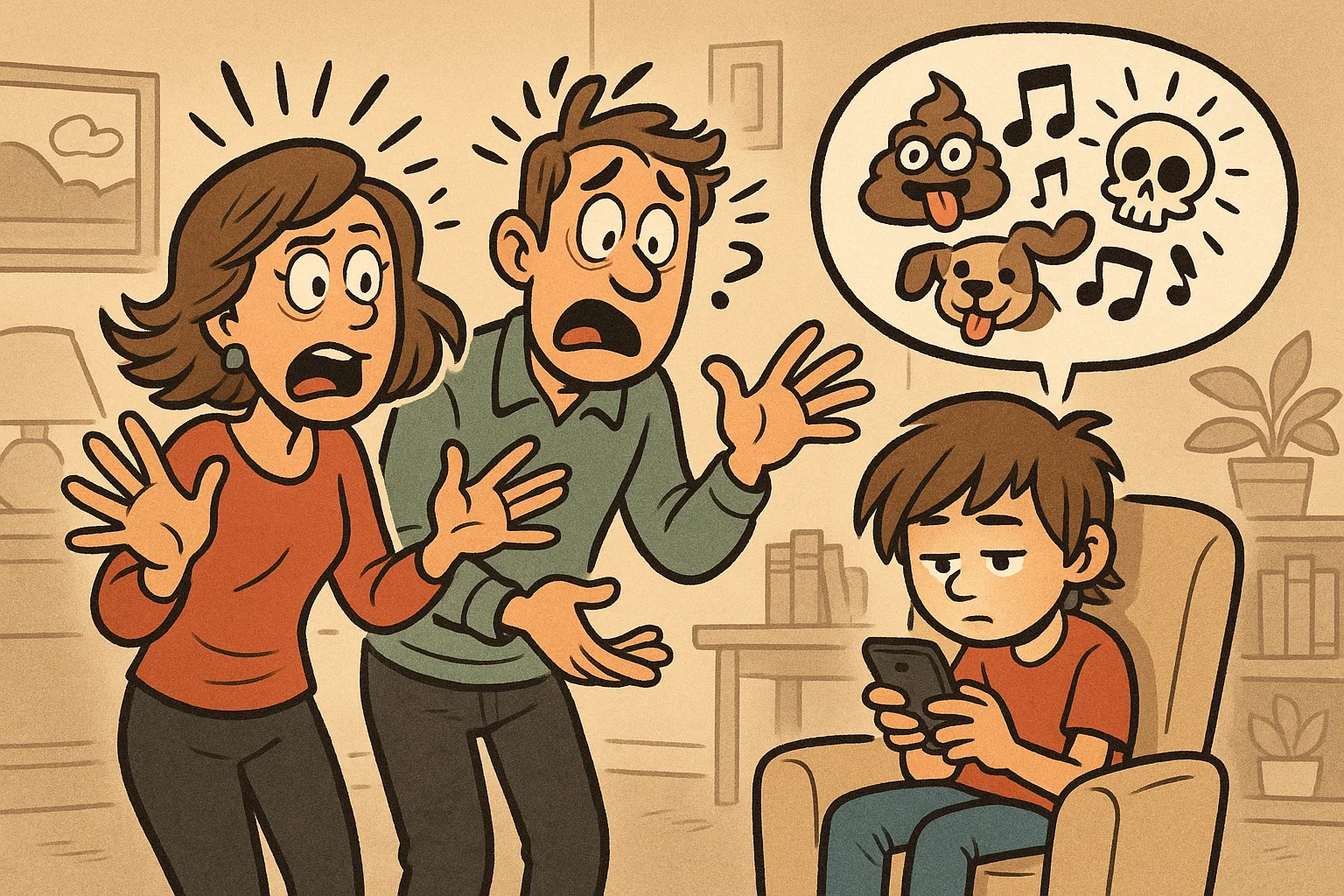The tween years – that fascinating bridge between childhood and adolescence – can feel like navigating uncharted waters for many parents. Your once-compliant child may suddenly challenge every rule, while simultaneously needing your guidance more than ever. Research from Saint James School of Medicine suggests that children aged 9-12 experience significant brain development, with the prefrontal cortex (responsible for decision-making) still maturing well into their twenties.
During this time, your preteen is developing their identity while hormone changes begin to influence their mood and behaviour. One day they want independence, the next they need reassurance that you’ll always be there. Understanding this developmental stage can help you parent with both patience and purpose, creating a foundation for the teenage years ahead.
Discipline

Effective discipline during the preteen years requires a shift from the strategies that worked when your child was younger. Your tween’s growing cognitive abilities mean they can engage in more sophisticated reasoning, but their emotional regulation skills are still developing.
The Top Five Behaviour Problems
| Behaviour Problem | What It Looks Like | Why It Happens |
| Defiance | Openly refusing to follow rules or instructions | Testing boundaries as they seek independence |
| Disrespect | Eye-rolling, talking back, or dismissive attitudes | Experimenting with power dynamics and self-assertion |
| Moodiness | Sudden emotional swings or irritability | Brain development and early hormonal changes |
| Lying | Dishonesty about activities, homework, or social situations | Fear of disappointing parents or avoiding consequences |
| Sibling Conflict | Increased arguing or competition with brothers/sisters | Competition for parental attention and establishing hierarchy |
The Top Five Parenting Tips
- Stay calm under pressure – Your tween feeds off your emotional energy. When you remain composed during challenging moments, you model emotional regulation they desperately need to learn.
- Choose your battles wisely – Not every disagreement needs to become a power struggle. Focus on non-negotiable safety and respect issues while allowing flexibility on lesser matters.
- Involve them in problem-solving – Ask “What do you think would be a fair consequence?” This approach helps develop their reasoning skills while maintaining your authority.
- Be consistent but flexible – Maintain core family values while adapting your approach as your child grows and demonstrates increased responsibility.
- Follow through every time – Empty threats undermine your credibility. If you set a boundary or consequence, ensure you can and will enforce it.
Discipline Tips for the Tween Years
The most effective discipline strategies for tweens focus on teaching rather than punishing. Natural consequences work particularly well at this age – if your preteen forgets their lunch, they experience hunger rather than you rushing to school with a meal.
Logical consequences should connect directly to the misbehaviour. When your child breaks curfew, they lose some freedom the following weekend. When they neglect chores, they make up the work before engaging in preferred activities.
Consider implementing a “cooling off” period before addressing serious misbehaviour. This gives both you and your preteen time to regulate emotions and approach the situation more rationally. Research from Oklahoma State University indicates that parent-child conflict peaks during early adolescence, making emotional regulation strategies crucial for maintaining family harmony.
How to Discipline Groups of Children
Managing multiple children during the tween years requires strategic thinking. Avoid comparison between siblings, as this can damage self-esteem and create lasting resentment. Instead, address each child’s behaviour individually while maintaining consistent family rules.
When group misbehaviour occurs, separate the children first, then address the situation with each one privately. This prevents them from feeding off each other’s energy and allows for more honest communication about their individual choices.
Communication and Connection

Building strong communication patterns during the tween years sets the foundation for your relationship through adolescence and beyond. Your kid needs to know they can come to you with problems while also feeling respected as an emerging individual.
Don’t feel rejected by their newfound independence
When your tween suddenly prefers friends over family time, it’s natural to feel hurt. However, this shift represents healthy development rather than personal rejection. Child development experts note that this growing independence is actually a sign that you’ve done your job well – you’ve raised a child confident enough to explore the world beyond your immediate sphere.
Instead of taking their independence personally, celebrate small moments of connection. A brief conversation in the car or helping with homework can be just as meaningful as the longer snuggle sessions you enjoyed when they were younger.
Set aside special time with your child
One-on-one time becomes even more crucial during the tween years, though it may look different than before. Your tween might prefer activities that feel more “grown-up” – perhaps cooking together, going for walks, or working on a shared project.
The key is following their lead while making yourself available. Some tweens open up during physical activities, while others prefer quiet moments. Pay attention to when your child seems most communicative and protect those opportunities from distractions like phones or other responsibilities.
Don’t be overly judgmental
Tweens are incredibly sensitive to criticism, even when it’s well-intentioned. When your kid shares something with you, resist the urge to immediately offer solutions or express disapproval. Instead, try responses like “That sounds challenging” or “How did that make you feel?”
This doesn’t mean abandoning your values or avoiding important conversations. Rather, it means creating a safe space where your tween feels heard before you guide them toward better choices.
How to Teach Your Child to be Polite
Politeness during the preteen years often requires explicit teaching rather than simple modeling. Your child’s brain is focused on peer acceptance, which can temporarily override the social skills they demonstrated when younger.
Practice social scenarios at home – how to greet adults, make eye contact during conversations, and express gratitude appropriately. Make it clear that politeness isn’t about being fake; it’s about showing respect for others and making social interactions smoother for everyone involved.
Don’t be afraid to start conversations about sex and drugs
Start with age-appropriate basics and let your child’s questions guide deeper discussions. For example, you might begin by talking about how bodies change during puberty, then gradually address more complex topics as your preteen demonstrates readiness.
Emotional and Social Development

The tween years bring significant emotional and social changes that can feel overwhelming for both children and parents. Your child’s social world expands dramatically while their emotional processing abilities are still developing.
The growing influence of peer group
During the tween years, peer opinion begins to rival parental influence in your child’s decision-making process. This shift is developmentally normal but can feel concerning when you see your kid adopting new attitudes or behaviours to fit in with friends.
Rather than competing with peer influence, help your tween develop critical thinking skills about friendships. Ask questions like “How do you feel after spending time with that friend?” and “What kind of friend do you want to be?” These conversations help them evaluate relationships based on how they feel rather than simply following the crowd.
Encourage sports for girls
Physical activity also provides an outlet for the emotional intensity that often accompanies this developmental stage.
If traditional team sports don’t appeal to your girl, consider alternatives like martial arts, dance, rock climbing, or individual sports. The goal is finding physical activities that build confidence and provide social connections with peers who share similar interests.
Nurture your boy’s emotional side
Boys face unique challenges during the preteen years as they navigate societal expectations about masculinity while experiencing the same emotional intensity as their female peers. Unfortunately, many boys learn to suppress emotions rather than express them healthily.
Create opportunities for emotional expression by sharing your own feelings appropriately and asking open-ended questions about his experiences. Avoid phrases like “boys don’t cry” or “toughen up,” which can shut down emotional communication. Instead, help him develop vocabulary for feelings and validate his emotional experiences.
What Your Tween Really Means When They Say “I HATE You!”
When your tween shouts hurtful words during an argument, they’re rarely expressing genuine hatred. More often, they’re communicating frustration, disappointment, or feeling misunderstood. Their developing brain struggles to articulate complex emotions, so they resort to the strongest language they know.
Respond to the emotion behind the words rather than the words themselves. You might say, “I can see you’re really upset about this. Let’s talk about what’s bothering you when you’re ready.” This approach validates their feelings while maintaining respect for family communication standards.
Why are some kids horrors at home?
If your tween seems like an angel at school but transforms into a challenging kid at home, you’re witnessing a common phenomenon. Home represents the safest place for your child to release the emotional pressure they’ve been holding all day.
Think of it as emotional decompression – your preteen has been working hard to meet expectations and navigate social situations all day. When they arrive home, they finally feel safe enough to let their guard down. While this can be exhausting for parents, it actually indicates that you’ve created a secure environment where your kid feels accepted unconditionally.
Digital Life and Media

- cess to accounts and passwords
- Discuss digital citizenship, including kindness online and protecting personal information
- Set specific time limits and stick to them
- Monitor for signs of cyberbullying or social comparison issues
Remember that your tween’s brain is particularly susceptible to the dopamine hits provided by likes and comments. Help them understand how social media is designed to be addictive and develop strategies for healthy usage.
Watch what they watch with them
Co-viewing media with your preteen creates natural opportunities for important conversations. When you watch shows or movies together, you can discuss the values portrayed, how conflicts are resolved, and whether the characters’ choices align with your family’s principles.
This shared experience also helps you understand your child’s interests and the cultural influences shaping their worldview. Don’t feel obligated to only watch “educational” content – even entertainment provides opportunities for meaningful discussion about relationships, decision-making, and consequences.


